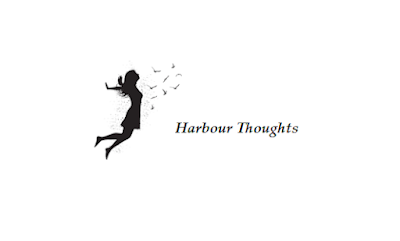Bear Hunt
By James McIntyre
Two youths came over from York state,
Bill Brown and Tom Dawes his mate,
For many months they were wishing
The sport of hunting and of fishing.
They rowed along the lake in punt,
When tired of fishing they would hunt,
At river's mouth they caught fine trout,
In woods close by they saw bear's snout.
In front of her play little chubs,
Fat and slick her darling cubs,
Kind thoughts in their breasts they smother
And cruelly they shoot the mother.
And bullet fearful tore her jaws,
A bloody wound, but with her paws,
Erect in air an awful sight,
She was prepared for her young to fight.
But this did not daunt bold Bill Brown,
With club he tried to knock her down,
But she gave him an awful hug,
With paws she at him fierce did tug.
He would been smothered but for Dawes,
Who rescued him from her great paws,
With club he knocked her on the crown
And thus he saved the life of Brown.
She rose again with savage frown
And quickly broke two ribs for Brown,
His clothes were all torn with her claws,
She smeared with blood both Brown and Dawes.
But Dawes now quick doth end the strife
By stabbing her with hunting knife,
And now around this hunter bold
His bear skin coat keeps out the cold.
Poem Analysis:
James McIntyre's poem "Bear Hunt" is a vivid narrative that combines adventure, the struggle between man and nature, and the moral implications of hunting. Through a straightforward yet compelling storytelling style, McIntyre explores themes of bravery, companionship, and the often brutal reality of wildlife encounters.
Structure and Form
The poem consists of a series of rhymed couplets that create a rhythmic flow, effectively mirroring the action of the narrative. The consistent AABB rhyme scheme enhances the poem's storytelling quality, making it engaging and easy to follow. The use of simple language and direct imagery allows readers to visualize the events as they unfold, capturing the tension and excitement of the bear hunt.
Characterization
The two main characters, Bill Brown and Tom Dawes, are portrayed as adventurous youths eager to experience the thrill of hunting. Their camaraderie is evident as they navigate the wilderness together, showcasing a strong bond forged through shared experiences. The contrast between the naive enthusiasm of the hunters and the fierce instincts of the mother bear adds depth to the narrative.
The mother bear, depicted with her cubs, represents both the beauty of nature and the ferocity required to protect one’s young. The imagery surrounding her is poignant, evoking sympathy for her plight as she faces the hunters. Lines like “with her paws, / Erect in air an awful sight” emphasize her readiness to defend her cubs, creating a sense of tension and highlighting the struggle for survival that characterizes the natural world.
Thematic Exploration
At its core, "Bear Hunt" grapples with the themes of nature's brutality and the moral implications of hunting. The hunters' initial excitement quickly turns to chaos as they confront the reality of their actions. The moment they "cruelly shoot the mother" signifies a turning point, as the thrill of the hunt gives way to a violent encounter that tests their courage and resolve.
The violence of the bear's response, as she "gave him an awful hug" and "smeared with blood both Brown and Dawes," underscores the dangers inherent in their actions. McIntyre presents hunting as a double-edged sword—while it can be a source of adventure and camaraderie, it also carries significant risks and moral consequences. The line “But this did not daunt bold Bill Brown” illustrates human tenacity in the face of danger but also raises questions about recklessness and the ethics of hunting.
The Resolution and Consequences
The climax of the poem occurs when Tom Dawes saves Bill Brown from the bear's fierce attack, highlighting themes of bravery and friendship. This moment of heroism shifts the dynamic from individual pursuit to collective survival, emphasizing the importance of camaraderie in overcoming challenges. The final act, where Dawes ultimately kills the bear, provides a resolution to the conflict but leaves a lingering sense of unease about the cost of their victory.
The concluding lines, where Brown dons the bear skin coat, serve as a stark reminder of the cycle of life and death inherent in nature. While he gains a trophy from the hunt, it comes at the expense of a mother bear's life—a reality that complicates the narrative's celebration of adventure. The bear coat symbolizes both a victory and a moral dilemma, prompting readers to reflect on the implications of such triumphs.
James McIntyre's "Bear Hunt" is a compelling exploration of the tension between humanity and nature, framed within the context of adventure and camaraderie. Through its vivid imagery and straightforward narrative, the poem captures the excitement of the hunt while also delving into the ethical considerations surrounding it. The contrasting depictions of the hunters' naivety and the bear's ferocity create a rich tapestry of themes that resonate with readers, encouraging them to ponder the complexities of human interactions with the natural world. Ultimately, McIntyre's poem serves as both an engaging narrative and a thought-provoking commentary on the responsibilities that come with hunting and the respect owed to the creatures we encounter.
